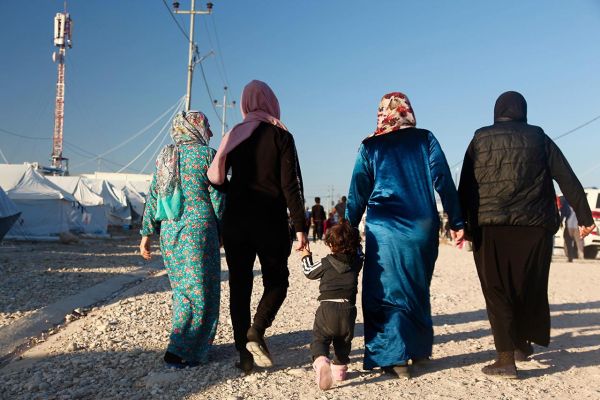Northern Syria
USC Shoah Foundation joined efforts with filmmakers from Culture Shock Productions, and traveled to Northern Iraq to speak with some of the thousands of refugees who already crossed the border, mostly from Syria, to escape the most recent round of ethnic violence against the Kurds.
The USC Shoah Foundation team spent a month filming interviews and carrying out an ongoing research program to assess the growing threat of genocidal violence against the local Kurdish population.
Other interviews were recorded inside Syria, as the filmmakers interviewed internally displaced persons who were forced to flee their homes and now live in makeshift situations with little aid, food or medical care.

Photo: Bardarash Refugee Camp. Photo credit: Andrew Kabbe
What you can do to support the relief effort
To help support those effected, below are three organizations currently involved in the ongoing relief efforts.
USA for UNHNCR – The United Nations Refugee Agency
UN Office for the Coordination of Humanitarian Affairs
USC Shoah Foundation
To support future efforts like this and the work of USC Shoah Foundation, please click here
Rozheen
28 year-old Rozheen speaks to USC Shoah Foundation after fleeing Syria with her family. Rozheen, her husband, and their four kids are now living in the Bardarash refugee camp in Iraq, unsure of when, or if, they will be able to return home.
Salem Farhan Muhammad
53 year-old Salem Farhan Muhammad speaks to USC Shoah Foundation after fleeing from Syria, leaving behind his father. He and his remaining family are now living in the Bardarash Refugee Camp in Iraq.
Shirin Mustafa
Shirin Mustafa speaks to USC Shoah Foundation after escaping from her home in Syria. Shirin and her family of seven are now internally displaced, living in a makeshift shelter in a school.
Wasy Mustafa Moshe
Wasy Mustafa Moshe speaks to USC Shoah Foundation from the Gawilan Refugee Camp in Iraq. Wasy, his wife and daughters all fled from their home in Syria and lived in a makeshift camp at a school, before arriving at Gawilan.